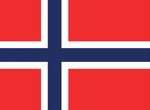
Call 0330 880 3600 Calls may be monitored or recorded. Opening Times.
- TRAVEL INSURANCE
- COVID-19 COVER
- More Options
- Help & Advice
- Existing Customers

Call 0330 880 3600 Calls may be monitored or recorded. Opening Times.

Need help?
UK Customer Services0330 880 3600*
Open Monday to Friday 9:00am to 6pm, Saturday 8:30am to 4pm and closed Sundays.
*Calls are recorded for training and quality purposes.

Official name: Kingdom of Norway
Capital city: Oslo
Languages spoken: Norwegian (Bokmål and Nynorsk), Sami
Population: Around 5.5 million
Currency: Norwegian krone (NOK)
Time zone: GMT+1 (GMT+2 in summer)
Driving side: Right
Climate: Coastal areas are mild and rainy, while inland and northern regions can be very cold and snowy in winter, with long, bright summer days in the Arctic
Norway, stretching along Scandinavia’s rugged western coast, is famed for its dramatic fjords, northern lights, and midnight sun. Oslo, the capital, combines green spaces, modern design, and a thriving cultural scene, while Bergen, Tromsø, and Trondheim each offer their own blend of history and natural beauty. The country is consistently ranked among the world’s best for quality of life, and it balances its oil wealth with strong environmental commitments and outdoor traditions.
Norway shares borders with Sweden, Finland, and Russia, and has an extensive coastline along the North Atlantic Ocean and the Barents Sea. Its geography is dominated by mountains, glaciers, and deep fjords, with only small areas of flat farmland. The Arctic north, including the Svalbard archipelago, lies within the polar circle, offering some of Europe’s most remote and pristine landscapes.
Oslo Airport Gardermoen is the main international hub, supported by regional airports in Bergen, Stavanger, and Tromsø. Trains connect Oslo to Sweden, while domestic routes serve much of the country. Ferries link coastal towns and islands, and Hurtigruten’s coastal voyage is a popular way to see the fjords. Roads are well-maintained, but winter driving requires caution and in some regions studded tyres. Public transport in cities is efficient and user-friendly.
As a Schengen member, Norway allows UK citizens and many other nationalities to enter visa-free for up to 90 days in any 180-day period. Longer stays for work or study require the appropriate permits. The British Embassy is located in Oslo, and most countries maintain representation in the capital.
The Norwegian krone (NOK) is the official currency. Credit and debit cards are widely accepted, even in small shops and for public transport. ATMs are common, and contactless payments are standard. Norway is expensive compared with much of Europe, particularly for dining and alcohol, but standards of service and quality are high.
Healthcare in Norway is excellent, with modern facilities and English-speaking medical staff widely available. EU residents can access necessary state healthcare with a GHIC/EHIC card, but travel insurance is essential for covering private care, repatriation, or costs not included in the public system. Pharmacies are accessible in towns and cities, and tap water is safe to drink everywhere.